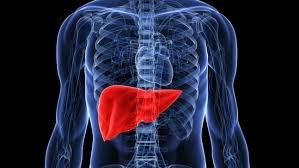For decades, alcohol was seen as the chief villain behind liver cancer. The logic was simple — excessive drinking damages the liver, leads to cirrhosis, and eventually cancer. But emerging data paints a new and more alarming picture: even people who completely abstain from alcohol are now developing liver cancer at increasing rates. In fact, experts warn that the condition is being driven by lifestyle diseases such as obesity, diabetes, and poor diet, making it a silent epidemic that transcends drinking habits.
The Changing Landscape of Liver Cancer
Liver cancer is now one of the fastest-rising causes of cancer deaths globally. Once primarily linked to hepatitis B and C infections or heavy alcohol use, it is increasingly being diagnosed in people without these traditional risk factors. According to global health reports, liver cancer accounts for roughly 1 in every 3 cancer deaths — a staggering figure that reflects both the increasing incidence and the difficulty of early detection.
Recent findings from cancer researchers suggest that more than half of liver cancer cases are preventable through lifestyle changes and vaccination against hepatitis viruses. Yet, the disease continues to rise due to the growing prevalence of obesity, sedentary lifestyles, and metabolic syndrome.
Why Non-Drinkers Are at Risk
The misconception that only heavy drinkers develop liver cancer has prevented many from recognizing their vulnerability. The truth is that liver cancer can develop in anyone whose liver undergoes prolonged inflammation and damage, regardless of alcohol consumption. The leading culprit behind this shift is a condition known as Metabolic Dysfunction-Associated Steatotic Liver Disease (MASLD) — formerly called non-alcoholic fatty liver disease (NAFLD).
In MASLD, excess fat builds up in liver cells due to poor metabolism, high sugar intake, obesity, and insulin resistance. Over time, this fatty buildup causes inflammation, scarring, and eventually liver cirrhosis — the same pathway that alcohol-induced damage follows. Once cirrhosis sets in, the risk of liver cancer increases dramatically.
Non-drinkers with metabolic disorders are therefore at equal or even higher risk than moderate drinkers with healthier lifestyles. A high-calorie diet, sugary drinks, and lack of physical activity can quietly push the liver toward disease without obvious symptoms.
Major Risk Factors for Non-Drinkers
Even if you don’t consume alcohol, several modern-day factors may still place your liver at risk:
- Obesity and High BMI: Excess fat, especially around the abdomen, can lead to fatty liver and chronic inflammation.
- Type 2 Diabetes: Elevated blood sugar damages the liver and accelerates fatty buildup.
- High Cholesterol and Triglycerides: Lipid imbalances worsen liver inflammation.
- Viral Hepatitis: Undiagnosed hepatitis B or C infections can quietly cause liver damage.
- Environmental Toxins and Pollutants: Certain chemicals and mold toxins (aflatoxins) contribute to liver damage.
- Genetic Predisposition: Some people are more vulnerable due to inherited liver conditions.
Even thin or normal-weight individuals are not immune. Those with visceral fat, insulin resistance, or a family history of fatty liver should still take preventive steps.
Warning Signs Often Missed
Liver cancer is often called a “silent killer” because symptoms typically appear only in the later stages. However, subtle early signs may include:
- Fatigue and unexplained weakness
- Mild pain or fullness in the upper right abdomen
- Jaundice (yellowing of the eyes or skin)
- Swelling in the legs or abdomen
- Unexplained weight loss or appetite loss
Routine health checks, including liver function tests and abdominal ultrasounds, can help catch liver abnormalities before they progress to cancer.
How to Protect Your Liver — Even If You Don’t Drink
Prevention is the best defense, and most non-alcoholic liver cancers can be avoided through proactive lifestyle changes and regular screening.
- Maintain a Healthy Weight: Losing just 5–10% of body weight can significantly reduce liver fat and inflammation.
- Exercise Regularly: Aim for at least 150 minutes of moderate physical activity each week to improve metabolism and insulin sensitivity.
- Follow a Liver-Friendly Diet: Choose whole grains, vegetables, fruits, lean proteins, and healthy fats. Avoid excessive sugar, refined carbs, and processed foods.
- Control Blood Sugar and Cholesterol: Manage diabetes, high blood pressure, and lipid levels under medical supervision.
- Get Vaccinated for Hepatitis B: It’s one of the most effective preventive measures against liver cancer.
- Avoid Smoking and Toxins: Both increase oxidative stress on the liver.
- Schedule Regular Screenings: For those at high risk, doctors recommend liver ultrasound and AFP (alpha-fetoprotein) blood tests every 6 months.
These simple interventions can dramatically cut your risk of developing liver cancer — regardless of whether you drink alcohol or not.
A Growing Public Health Concern
Experts now believe that the next wave of liver cancer cases will come primarily from the growing obesity and diabetes epidemics, not alcohol. This represents a major shift in medical understanding and public health strategy. As global lifestyles become more sedentary and diets more processed, the liver is becoming one of the organs most under threat.
The World Health Organization emphasizes the urgent need for early screening, especially in populations where fatty liver disease is common. With obesity and diabetes affecting millions worldwide, doctors are warning that ignoring liver health could lead to a crisis comparable to the one caused by alcohol decades ago.
Conclusion
The rise in liver cancer among non-drinkers is a wake-up call for everyone. While alcohol remains a known risk factor, the real danger now lies in the modern lifestyle — unhealthy diets, excess sugar, obesity, and lack of exercise. A healthy liver is central to overall well-being, and its silent suffering often goes unnoticed until it’s too late.
So whether you drink or not, it’s time to give your liver the attention it deserves. Eat clean, move more, get regular check-ups, and keep your metabolism in check. Protecting your liver today could mean preventing one of the most deadly — yet preventable — cancers tomorrow.
Do Follow Us Instagram







